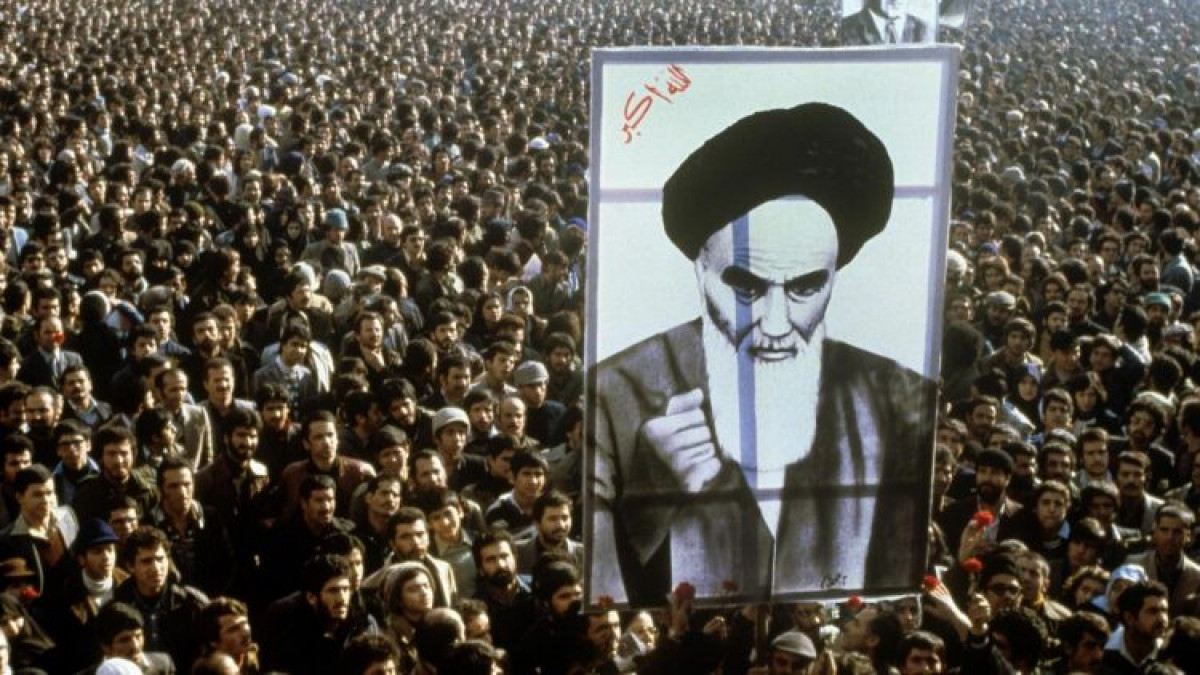 125
125
The Islamic Revolution triumphed as a result of the late Imam Khomeini’s leadership, the blood of great martyrs, and the Iranian nation’s unwavering determination, and it became so prominent and unique that no other movement or revolutionary uprising can compete with it, given that the 1979 Islamic Revolution had very different goals and intentions. For example, if we compare the Islamic Revolution in Iran to two well-known western revolutions (France and Russia), we may claim that the French revolution was motivated by the desire of liberty and welfare, while the Russian revolution was driven by the search of justice and equality. The Islamic Movement in Iran, on the other hand, was inspired by spirituality; it is a revolution of high aspirations and not ordinary purposes. Thus, while the French revolution was merely political and the Russian revolution was purely economic, the Islamic Revolution in Iran was cultural, spiritual, and divine in essence.
It is impossible to comprehend and criticise a revolution without paying attention to its achievements, and the Islamic Revolution’s relevance is underscored when we realise that its successes are directly tied to its goals. Thus, the most significant accomplishments of the Islamic Revolution may be grouped into five key categories.
1-Political:
In terms of internal politics, the fall of the Shah is frequently viewed as the most historic event, ending 2500 years of monarchy.
Establishing an Islamic government and civil institutions based on popular elections and direct votes, eliminating dreaded and inhuman organisations such as SAVAK, formulating and approving the Islamic Constitution, establishing revolutionary and popular organisations such as Basij, the Islamic Revolution Guard Corps, the Mostazafan Foundation, and the Martyr Foundation, among others, promoting and increasing unity between Shia and Sunni.
However, in terms of foreign policy, the most important win is the rejection of a forced confrontation. The Revolution’s most significant accomplishments in this arena include exposing the true face of colonial countries, resisting sanctions and unjust economic restrictions, awakening other Islamic nations to oppose the illegal Zionist regime, taking fundamental and logical positions on upcoming challenges and crises, sending the Revolution’s message to other countries, and exhorting them to pay attention to their power and capital.
2-Military deterrence and Self-Defense:
The Islamic Revolution’s most significant defensive achievements include institutionalising the concept of defending the country against aggressive enemies, designing and manufacturing military equipment using the talents and abilities of domestic experts and innovators during the years of imposed war with Iraq, foiling enemy plots and malicious agendas, and effectively guarding the country’s borders.
Economical:
Eliminating the corrupted economic enterprises founded on usury during the Shah regime, producing and exporting oil, attempting to eliminate the single-product economy, developing and launching additional economic enterprises, attempting to achieve agricultural self-sufficiency, constructing dams, controlling floods, and developing hydroelectric power plants, developing the telecommunications network and extending gas to the remotest villages.
4-Academic:
Purging universities of agents associated with the Shah regime and western corrupt ideologies, quantitatively and qualitatively developing universities, pursuing the integration of religious seminary and university, concentrating on new and fundamental knowledge such as nanotechnology and biotechnology, observing an increase in women’s attendance at scientific and research centres while maintaining their dignity.
5-Culture:
Eliminating symbols of social and moral corruption within the Shah regime, purifying the major cultural arenas (television, radio, cinema, music, books and magazines), reviving the dignity and identity of mosques as places of spiritual refinement and self-perfection, declaring the value and worth of women apart from western abnormalities, taking appropriate stances in the face of anti-cultural trends worldwide and directing public attention toward the Godly way of life.
Comment
Post a comment for this article